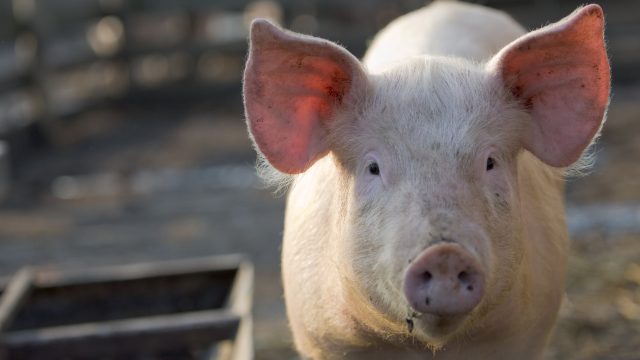
Animal neglect is the failure to provide basic care required for an animal to thrive. At first glance, such cases may seem less egregious than a single, brutal act of violent abuse, but severe neglect can mean extended periods of extreme suffering resulting in permanent injury or death.
A single large-scale neglect case can affect hundreds of animals, as in cases of hoarding, puppy mills and neglect of farmed animals.
Issues common to neglect cases:
- Animal neglect is often associated with human neglect involving a child, an elder, or another dependent.
- Handling all of the animals involved in large-scale neglect cases (hoarding, puppy mills and farm neglect) requires considerable effort and expense – all animal victims must be examined, treated, cataloged as evidence and sheltered – potentially during the entirety of a court case.
How to help a neighbor’s neglected animal
It can be heartbreaking to see a neighbor’s animal suffering in a situation of neglect. Depending on the situation, there are various ways you can help the animal or animals involved.
For emergency situations in which an animal’s life or safety is in immediate danger, contact your local law enforcement or call 911 immediately.
If the animal’s life is not in danger but you suspect neglect, it may be productive to approach the guardian and offer assistance such as walking the dog or even helping to place the animal in a more appropriate home. It is a sad fact that at times people get animals without thinking about the long-term commitment they are taking on; when the reality of the situation becomes apparent, they may be relieved to have someone offer their assistance.
There are times when the caretaker of the animal is blind to their inability to offer the appropriate care for the animal or animals under their guardianship. When more animals are taken in than the caretaker is able to care for, such a situation readily spirals out of control into what is referred to as “animal hoarding.”
If the guardian of the animals is not approachable, or if you suspect the animal is suffering from abuse as well as neglect, alert law enforcement, your local humane society, or your local SPCA (whichever is appropriate in your area) about the situation. It will be helpful to document what you have witnessed, including noting dates, locations and specific incidents and problems in a detailed journal. Photographs, video, and other evidence of the abusive conditions are helpful and persuasive. The Animal Legal Defense Fund does not have an investigative unit, so it is imperative that local authorities fully investigate the case.
If the overseeing agency is non-responsive,consider circulating a petition that you can then present to the agency demanding that the abusive conditions be immediately corrected. Consider enlisting the help of the local media such as newspapers,radio and television stations to publicize the situation.
A number of laws may apply; usually these would be state and/or local laws, but there may be federal laws as well (e.g., if you suspect the animals are used for fighting). To obtain local ordinances, contact your city council, local humane organization, visit your local library, or check online at www.municode.com.
For situations in which your state’s anti-cruelty statutes may have been violated, see the Animal Legal Defense Fund’s information about criminal anti-cruelty cases.
If your state anti-cruelty statutes are weak, you can help to strengthen them with the Animal Legal Defense Fund’s model law information.
Remember that your eyes may be the only witness to the suffering of an animal in need, and your intervention may be crucial in saving his or her life.
Focus Area
How We Work
Related
-
Court Rules Texas Food Label Censorship Law is Unconstitutional
The law imposed unclear and vague standards on plant-based meat producers that violate the First AmendmentJanuary 29, 2026 Press Release -
State Animal Protection Laws Ranked: Oregon is #1, North Dakota #50
20th edition of ALDF state and territory ranking report highlights major advancements & trends in animal protection across the U.S.January 27, 2026 News -
Over 30 Organizations Urge USDA to Limit Federal Support for Manure Digesters
Hundreds of millions of dollars intended to cut energy costs have been funneled to costly manure digesters, benefitting the largest factory farmsJanuary 15, 2026 News
Stand Up to Animal Cruelty
Puerto Rico’s only zoo is not a safe place for animals. Please sign the petition below to help close the zoo and find these animals new homes.




